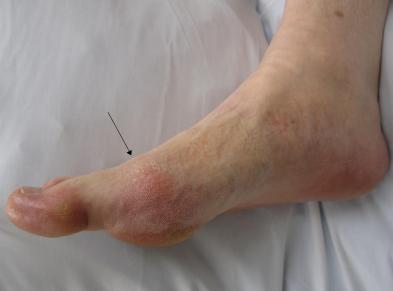Learn All About Gout: Causes, Symptoms, Diagnosis, and Treatments
Gout is a type of arthritis that’s characterized by painful, stiff, and swollen joints. The areas of your body most likely to be affected are your big toe, feet, ankles, knees, elbows, wrists, and fingers. Some people who experience a “gout bout” say it is the worst pain they’ve ever experienced.
The primary cause of gout is a buildup of uric acid, a waste product in your body. This buildup causes urate crystals to gather around your joints, which then causes gout. The buildup of uric acid in the first place is caused by purines, which may occur naturally in the body and are also found in foods like shellfish, meat, liver, anchovies, and alcohol. To learn more about gout, including risk factors, diagnosis, and treatment options, keep reading.
 All about Gout
All about Gout
While people used to believe that gout was all about diet, we now know that a much broader range of people are susceptible to developing this disorder. However, eating certain types of foods in excess, including those with lots of purines, can certainly increase your risk of getting gout. Other risk factors include alcohol consumption, obesity, and having a family history of gout. Men are also more susceptible than women.
So what do you do if you have gout? First, you should get treatment recommendations from a medical professional. Don’t try to self-diagnose and treat gout alone. Guidance and most likely prescription medications will be needed to get your gout under control.
A medical professional will determine if you may have gout after performing a medical exam and asking you a series of questions. X-rays of swollen joints or taking fluid from joints and examining it for urate crystals can both give a more definitive diagnosis.
Here are some treatment options that may be recommended to manage your symptoms and help keep them under control:
- Prescription medications
- Over-the-counter medications, such as aspirin
- Organic, unfiltered apple cider vinegar and supplements like tart black cherry
- Diuretics
- Avoiding purine-rich foods
- Avoiding alcohol and fructose
A medical professional will obviously be needed to prescribe medication. Whenever you need to make major lifestyle changes, such as changing your diet, it’s important to have help and guidance. Get the medical attention and support you need at a FastMed Urgent Care clinic near you. We’ll provide you with high quality, cost-effective care as well as courteous attention and concern for your medical issues.